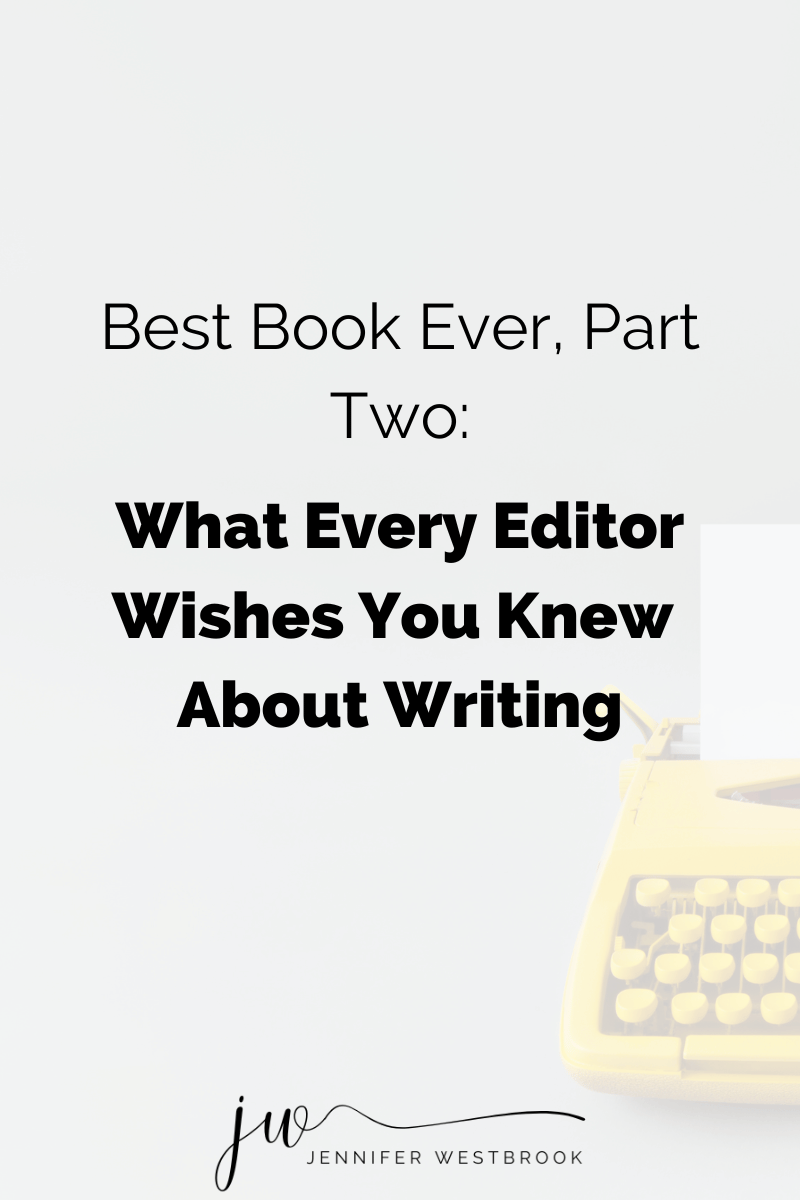Best Book Ever, Part One: Developmental Editing, Manuscript Critiques & Whether You Need Either One
- Jennifer Westbrook

- Apr 17, 2020
- 3 min read
Updated: Jun 6, 2023
In this four-part series, I’m pulling back the curtain on all things book writing and editing. If you’re finally ready to get your book written and published, and you haven’t figured out how to navigate all the confusing parts of the process, this series is for you.

Here in Part One, we’re talking about manuscript critiques and developmental editing.
Think of critiques and developmentals as the pre-editing phase, designed to help you determine whether your manuscript is on the right track and how you can improve it.
Although they have some similarities, critiques and developmentals aren’t the same thing, and the distinctions are pretty important.
And while many self-published authors skip over these initial processes, the truth is this: you just might need one of them—or both—to make the difference between ending up with a book that misses the mark and one that knocks it out of the park.
By the time you finish reading this post, you'll know whether and when you need to put your manuscript in the hands of an expert, so you can write your best book ever and finally share your story with the world.
So let's dive in and take a look at both processes—what they are, who needs them, and what you can expect.

Manuscript Critique: When You’re Not Sure You’re on the Right Track
What Is It?
A manuscript critique is also referred to as a manuscript review or diagnostic. It’s a high-level assessment where a professional editor evaluates your manuscript's overall strengths and weaknesses and tells you how to improve the key elements of your book based on your genre and intended audience.
Who Needs It?
A manuscript critique is ideal for you if you aren’t sure that your book is on the right track and you want some constructive feedback before you spend more time developing it.
You can save yourself lots of time, frustration—and potentially lost book sales—if you get a critique before you move on to the editing phase.
While a manuscript critique from a professional editor will certainly help you create a better, more marketable book, this should not replace your own market research and beta reviews. You still need the input of others to learn whether your book will resonate with your target audience.
So make sure you’re doing some digging into what people want. By asking a small sampling of your ideal audience what they think about your book in the early stages, you’ll have plenty of time to go back to the drawing board if needed.
What Should You Expect?
After you put your manuscript in the hands of a great editor, most critiques will come in the form of a written analysis or markup of your document. The critique should include the editor’s feedback and recommendations on your work as a whole.
The editor addresses the overall structure and style of your writing, as well as flow and pacing. Depending on your genre, you’ll also get suggestions on improving your narrative voice and dialog, as well as plot and character development.
While some editors will give you these recommendations in a written report or summary, some will include a scheduled time to talk through the report.
For clients who work with me, my critiques include both: a written report with my feedback and recommendations, as well as an optional one-hour strategy session by telephone or video conference to discuss my recommendations in detail.
Developmental Editing: When You Need Help Improving Your Manuscript

What Is It?
A developmental edit is a detailed analysis of your manuscript. It’s a more in-depth analysis than the manuscript critique because a developmental involves a review of each chapter, paragraph and line of your manuscript.
Who Needs It?
If you’ve written your manuscript and don’t think you need to go back to the drawing board but you’re open to receiving direction on how to improve your work, a developmental edit is perfect for you.
It’s helpful to get a professional’s eyes on your work early to help you close any gaps, beef up anything that’s lacking enough substance, and help bring your manuscript to completion before you move on to the final editing phase.
We’ll talk more about the manuscript editing process in the next post, by the way.
What Should You Expect?
Similar to a manuscript critique, you’ll typically receive your developmental edit in the form of a report or markup of the draft that you gave to the editor. Within your draft manuscript, you’ll see the editor’s comments throughout, recommending improvements and overall revisions to your work.
Conclusion
So, that should demystify manuscript critiques and developmental editing for you.
Over the next few posts, you'll find out more of what you need to know so you can take the guesswork out of the writing and editing process, so be sure to stay tuned.
by Jennifer Westbrook | JenWestWriting






Comments